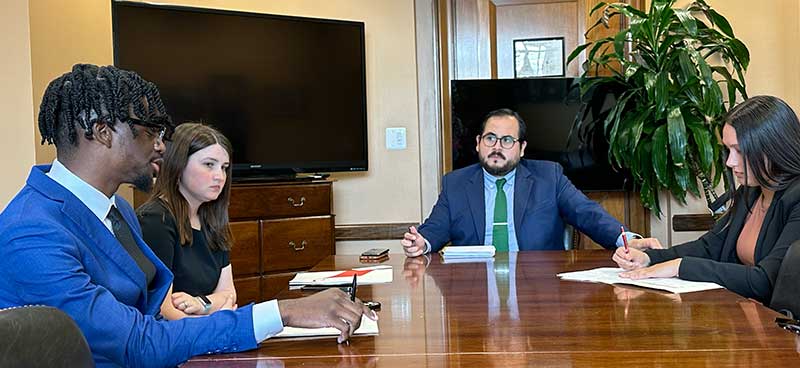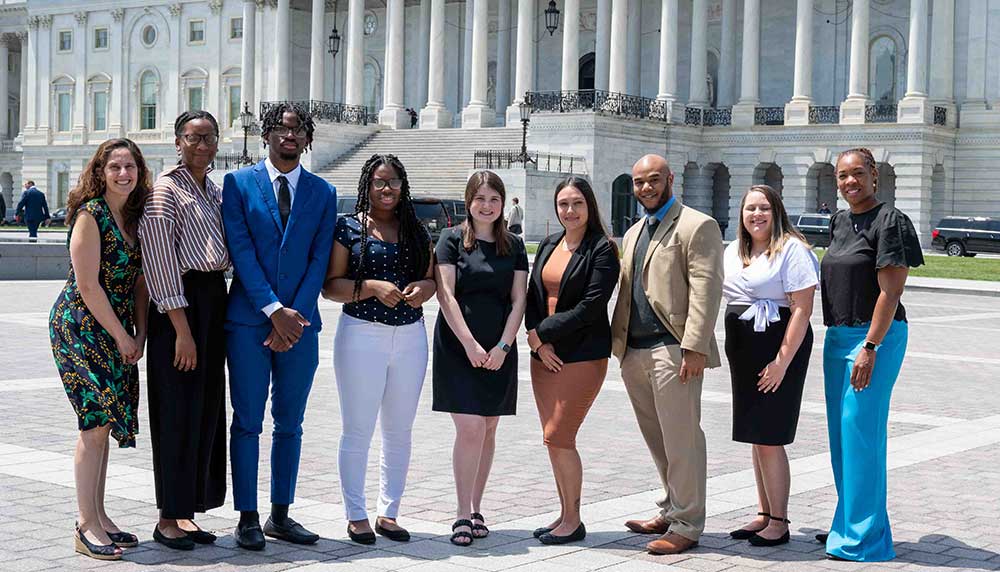Transition-age young adults discuss their experiences at U.S. Senate Caucus on Foster Care
A diverse group of young adults with lived experience in child welfare systems came together to share their experiences and push for the services and support that all transition-age foster youth need in Washington, D.C., recently.
The Lived Experience Congressional Briefing on Capitol Hill was sponsored by the U. S. Senate Caucus on Foster Care and presented by Youth Villages. It was part of Foster Care Awareness and Mental Health Awareness months.
Youth Villages is a national nonprofit organization, serving more than 36,000 children, families and young adults every year in 24 states and the District of Columbia. Its LifeSet program is the largest in the country helping transition-age foster youth and one of the only program models to have shown impacts on many parts of a young person’s life in a randomized clinical trial.

Participating in the panel were Abby Nelson and Brandon Washington, LifeSet Scholars from Memphis, Tennessee; Julmonzhae Moore, a LifeSet participant from Kentucky; Ali Massengill, a former LifeSet participant who is now regional supervisor of Youth Villages LifeSet and Intercept programs in Kentucky and Laticia Aossey, of Iowa, statewide program coordinator of AMP – Achieving Maximum Potential – a foster care youth advocacy council.
Washington entered foster care at age 15 and lived in five different foster homes. He described his time in care as a roller coaster.


